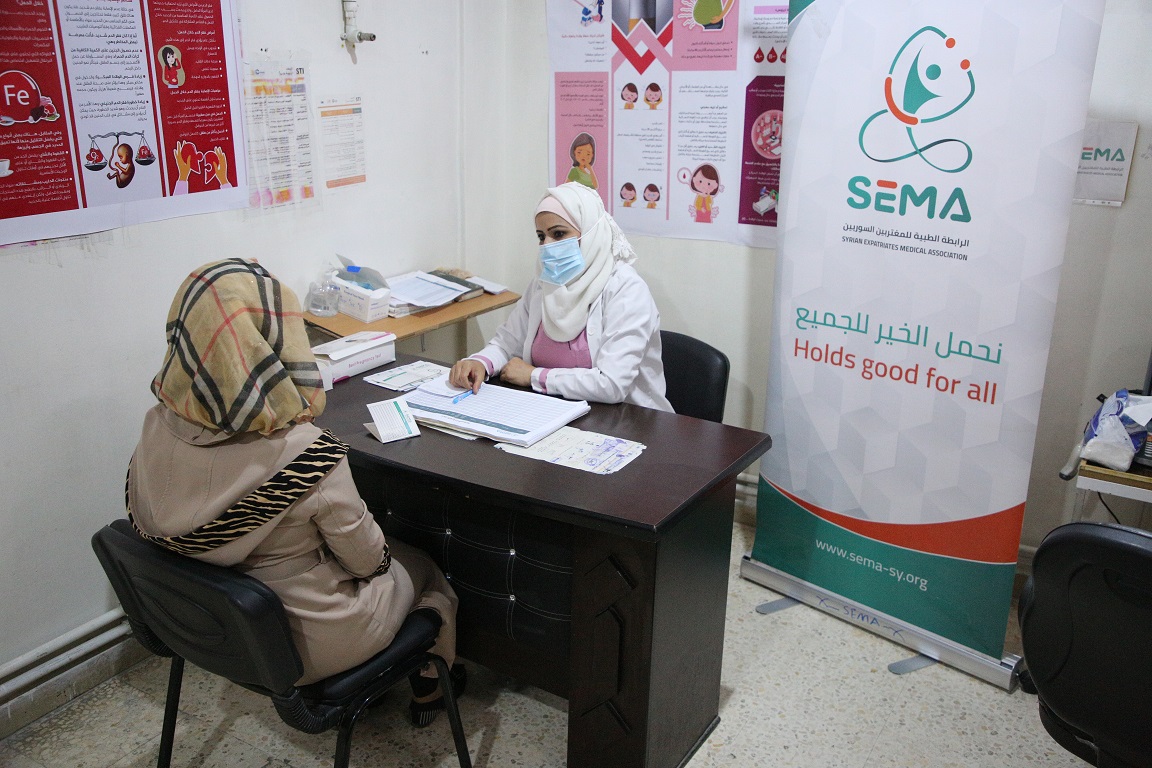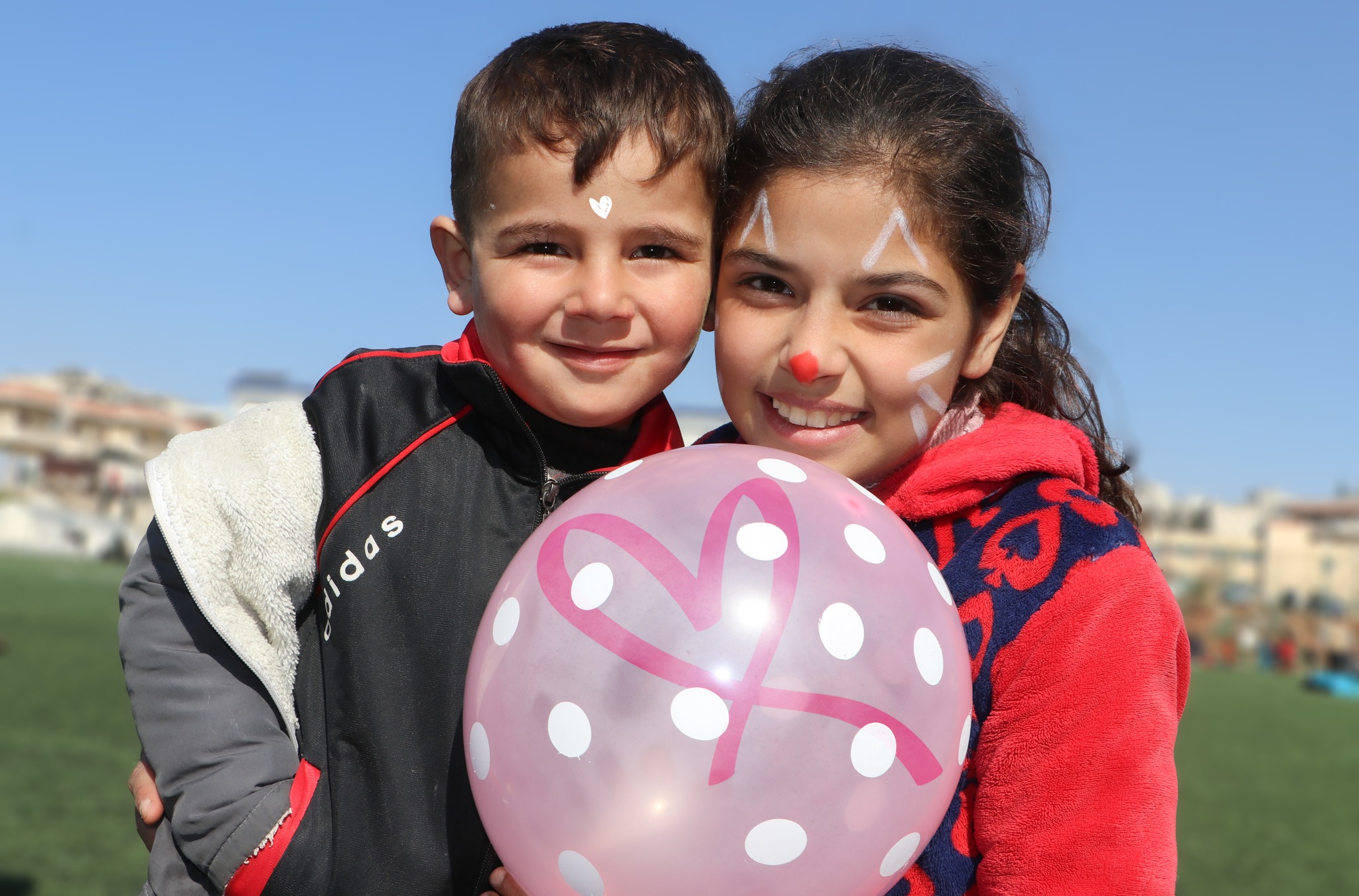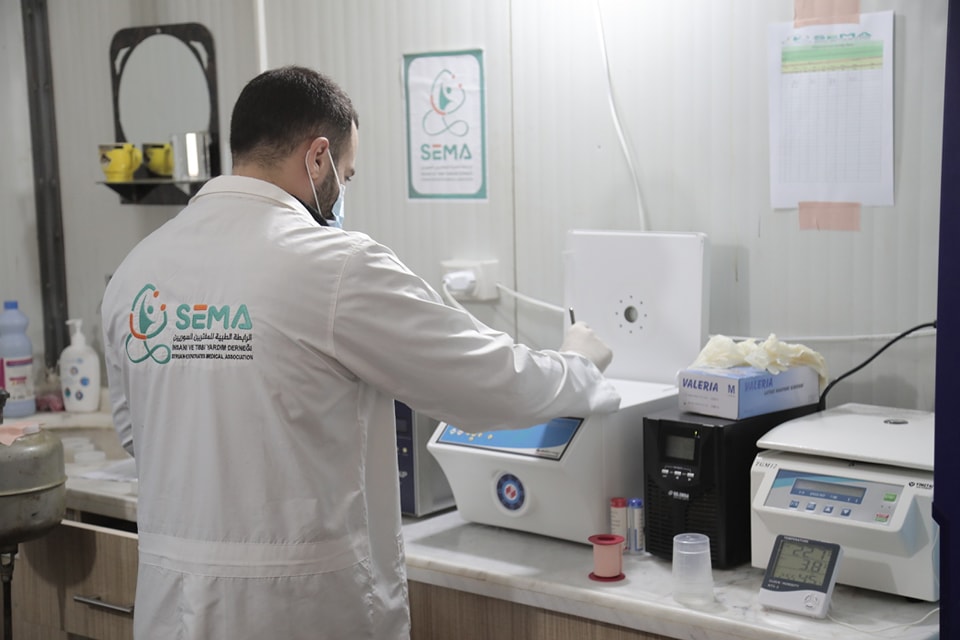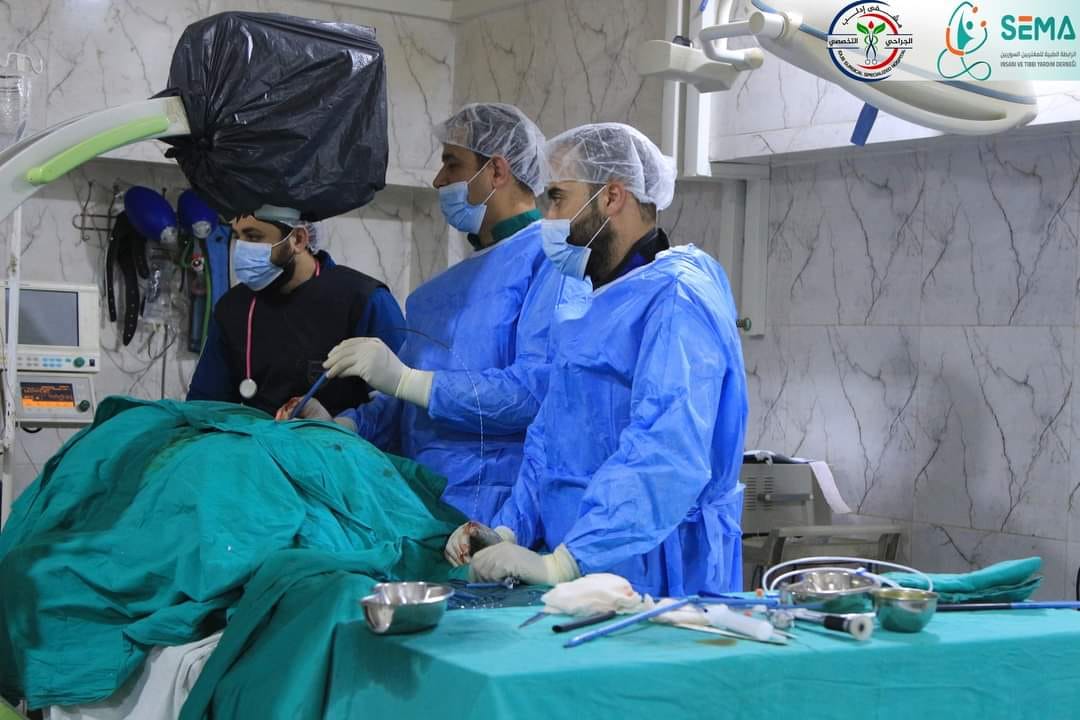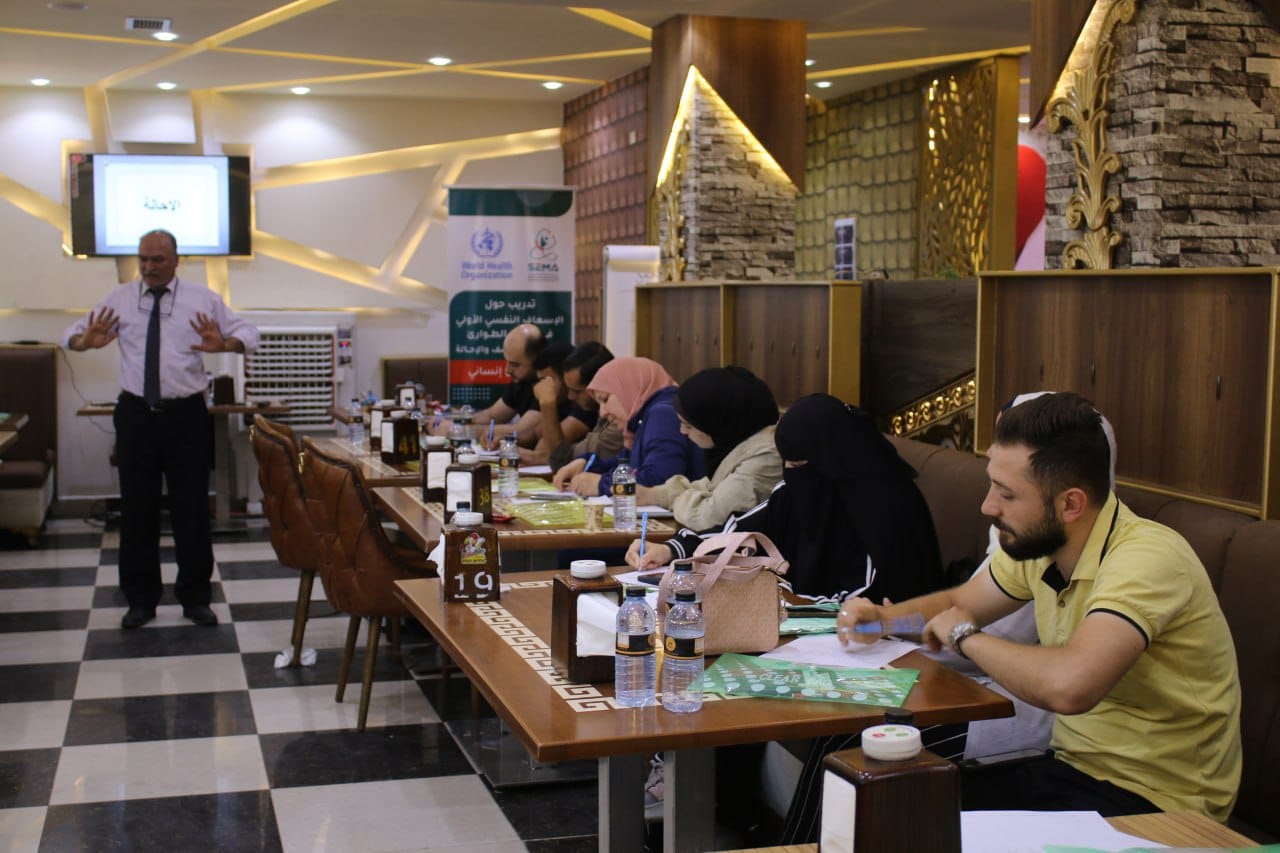Women in refugee camps suffer from limited access to reproductive and maternal healthcare services, exposing them to the risk of many infections and diseases.
In addition to their limited access to such services, Syrian refugee women suffer from inadequate, safe, and clean WASH facilities. Indeed, this exposes them to multiple hygienic risks and infections.
This article will further shed light on the hygienic requirements of Syrian refugee women as well as effective approaches to addressing such needs.

Specific health and hygiene needs
Women in refugee camps have specific health and hygiene needs which are key to their well-being and health.
Refugee women need access to comprehensive healthcare services, such as mental health services, reproductive health services, and family planning.
Lack of access to healthcare services and information
However, refugee women lack access to menstrual hygiene products, such as sanitary pads and tampons, which expose them to many hygienic risks, diseases, and huge discomfort.
Moreover, women in refugee settings lack access to safe and clean WASH services, which are important for cooking, drinking, and meeting their hygienic needs.
Most importantly, refugee women need access to educational materials on the best hygienic practices to help them take care of themselves in order to prevent the spread of disease and illness.
To this end, access to basic sanitation facilities, such as toilets and showers, is substantial for women to maintain adequate hygiene and health.
Challenges related to menstrual hygiene management
There are many challenges that hinder menstrual hygiene management in refugee settings. Such challenges include:
- Refugee women have limited access to menstrual hygiene supplies, which can lead to poor hygiene practices, such as reusing paper and pieces of cloth.
- In some cultures, discussing menstruation is considered taboo; therefore, women in such settings do not receive the necessary information to manage their hygiene needs.
- Women in refugee camps face gender-based discrimination, which hinders the process of accessing menstrual supplies and the information they need.
SEMA’s efforts to support refugee women’s wellbeing
Seeking to support women’s reproductive health and well-being, at the Syrian Expatriate Medical Association (SEMA), we make sure to equip Syrian refugee camps with the necessary services and facilities to cater to their needs effectively.
SEMA’s efforts also include installing WASH services across Syrian refugee settings to ensure the provision of clean water and sanitation services.
Our healthcare projects that provide reproductive healthcare and gynecology services in refugee camps include Nabd Al Hayat PHC, Al-Farabi Hospital, Alikha’a Hospital, and Moaz Abu Mahdi Hospital.
You can now join us by supporting our projects to help give hope to thousands of Syrian refugee women in these desolate camps.
Promoting menstrual hygiene management and providing appropriate resources
Civil society organizations, such as NGOs and nonprofits, can promote menstrual hygiene management and practices in refugee settings in a variety of ways.
Such ways include providing access for women to clean and safe WASH services and distributing sanitary pads, tampons, and menstrual cups.
In addition, civil society organizations can hold partnerships with local organizations on the ground to help spread awareness and education on hygienic management as well as the best hygienic practices for women in refugee communities.
Moreover, civil society organizations can also help provide healthcare services for refugee women, especially in areas relevant to gynecological care and reproductive health.
Reproductive health
Women in refugee camps are exposed to the risk of contracting many diseases related to their productive health. This is because they lack access to advanced reproductive health services.
Reproductive health challenges faced by refugee women
Many Syrian refugee women face reproductive health challenges such as the following:
- Constrained access to comprehensive reproductive health services, including family planning, delivery options, postnatal care, and antenatal care.
- Syrian refugee women lack access to educational materials on sexual and reproductive health, hindering their ability to make informed reproductive health decisions.
- Many Syrian refugee women face the risk of gender-based violence because they lack protection and security in refugee camps.
- Syrian refugee women lack access to menstrual supplies and sanitary products, which makes menstrual management hard for them.
Barriers to reproductive health education and awareness
Barriers to reproductive health education in Syrian refugee camps include:
- Lack of access to reproductive medical health services.
- The limited knowledge and resources available to Syrian refugee women.
- Cultural barriers that consider reproductive health in refugee camps taboo.
Approaches to addressing reproductive health needs
There are multiple approaches that can help address the reproductive health needs of refugee women in camps.
For example, women need a safe space where they can access reproductive health facilities and services, such as health clinics and mobile clinics.
Other effective approaches to dealing with the reproductive health requirements of refugee women include:
Providing comprehensive reproductive health services in refugee settings
Comprehensive reproductive health services and facilities include contraception, postnatal services, family planning, and antenatal care.
Access to such comprehensive reproductive health services can help in the reduction of maternal mortality and morbidity, preventing unintended pregnancies, and limiting unsafe abortion practices.
Empowering refugee women through education and awareness programs
Empowering Syrian refugee women through spreading awareness and educational programs on reproductive health is very critical.
This is because knowledge and education on reproductive health can help them cope more effectively with the trauma and negative experiences of displacement.
In addition, knowledge can help refugee women make informed decisions regarding their productive healthcare, allowing them to have more control over their bodies.
Such access to resources and information can help Syrian refugee women better take care of themselves and their families.
Importance of maternal care for refugee women
Maternal care is extremely substantial for Syrian refugee women because it enables them to have a safe and secure space to give birth and receive the postnatal care they need for themselves and for their children.
Such a safe environment can protect women from many reproductive diseases that can put their lives at risk.
Increased risks and challenges faced during pregnancy and childbirth
Syrian refugee women are exposed to countless challenges and risks during pregnancy and childbirth, which include the following:
- Limited access to adequate healthcare services related to childbirth and pregnancy.
- Poor nutrition, which can lead to malnutrition and health complications during pregnancy and childbirth.
- Limited access to WASH services for drinking, cooking, and hygiene needs, which increases their risk of infections.
- Limited access to contraception, which increases Syrian refugee women’s chances of unintended pregnancies.
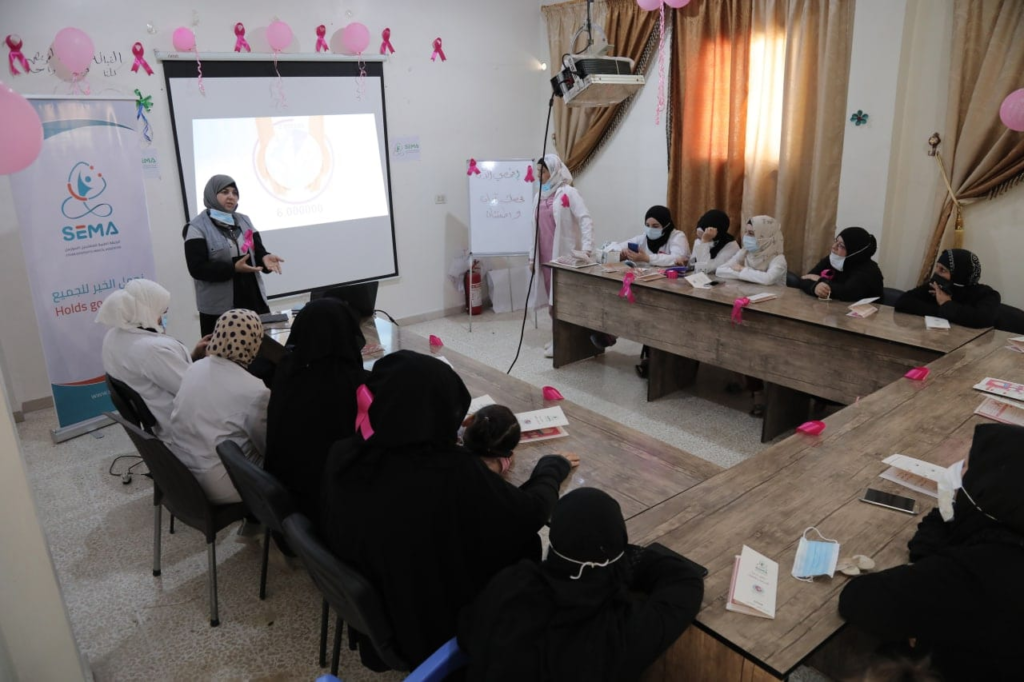
Access to antenatal and postnatal care for refugee women
Access to antenatal and postnatal care for refugee women is a necessity, not a privilege. Such health services can support refugee women during pregnancy and after they give birth.
This is because, without such healthcare services, they are faced with the risk of health complications.
This care can reduce the risk of infant mortality and improve the well-being of mothers and their newborns substantially.
Addressing mental health and psychosocial support needs during pregnancy and the postpartum period
Mental health and psychosocial support during pregnancy and the postpartum period can provide Syrian women in refugee camps with the mental support they need during this time.
This is because women in the postpartum period are exposed to many psychological problems, including anxiety, depression, and post-traumatic stress disorder.
Therefore, such problems can expose those women to poor mental health and well-being, as well as poor infant health outcomes, including infant mortality.
Therefore, psychosocial support equips women with the support they need to cope with the stress associated with giving birth in disadvantaged conditions in refugee settings.
SEMA’s efforts to support refugee women’s wellbeing
Seeking to support women’s reproductive health and well-being, at the Syrian Expatriate Medical Association (SEMA), we make sure to equip Syrian refugee camps with the necessary services and facilities to cater to their needs effectively.
SEMA’s efforts also include installing WASH services across Syrian refugee settings to ensure the provision of clean water and sanitation services.
Our healthcare projects that provide reproductive healthcare and gynecology services in refugee camps include Nabd Al Hayat PHC, Al-Farabi Hospital, Alikha’a Hospital, and Moaz Abu Mahdi Hospital.
You can now join us by supporting our projects to help give hope to thousands of Syrian refugee women in these desolate camps.
FAQ
What were the hygiene conditions like in refugee camps?
The hygiene conditions in refugee camps vary depending on many factors, including the location and resources available.
Why is female hygiene important?
The treatment of women in refugee camps depends on the policies and practices that govern the camp. However, women in such camps are generally more exposed to the risk of discrimination and gender-based violence.
How are women treated in refugee camps?
Female hygiene is important because it helps curb the risk of developing infections and keeps women’s reproductive areas clean and healthy.
References
Read More:
Significance of Meeting Children’s Emotional Needs
Strategies for Supporting Children Who Experienced Trauma or Loss
Hydration Hacks: Stay Refreshed Throughout Ramadan!
Charitable Giving and Community Impact Explored in Ramadan
How does giving Sadaqah during Ramadan benefit the community?

